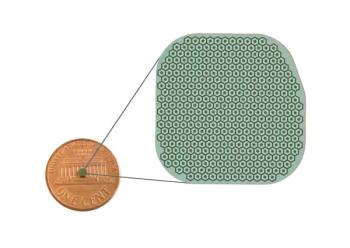
‘Linking in’ to optometry
LinkedIn is an online social media platform that connects professionals around the world with the goal of increasing productivity and success. Founded in 2003, the now ubiquitous tool has revolutionized the way people are hired. LinkedIn offers unique benefits to the prospective employee, making it a useful tool to have as an optometry student.
LinkedIn is an
Professional social media
A
Setting up an account on LinkedIn is very easy and can be done in a matter of minutes. LinkedIn is a free service, with a premium membership providing a deeper level of benefits also available at a monthly rate. Once your account is set up, you can begin building your profile. Here you can include your education, work experience, publications, skills, and awards or achievements. Your profile can be as detailed as you want. For example, you can add every single course you ever took in undergrad to your education section. Practically speaking, however, a potential employer will not have the time to read through all of these details, so it is best to be concise and focus on the most important items. At the very least, you should list your work experience, a summary of what you are currently doing and your goals, a list of relevant professional skills, and a list of any relevant awards or accomplishments. I highly encourage including more than this-such as publications, certifications, endorsements, etc.-to set yourself apart.
Expand your professional network
After joining LinkedIn, you will be surprised to find out how many friends, classmates, professors, and practicing optometrists are already members. It is effectively an excellent place to network, and communicate with other professionals. Your connections can endorse you for skills, send you messages, get updates on your employment status, and most importantly, connect you to more people. As your network grows, you will have access to world-class professionals in our field and in others we work with, and the LinkedIn interface makes it very easy to keep in contact with them. The true value of LinkedIn lies in the individuals it connects you to.
As a LinkedIn member, you can join groups that are relevant to you. There are a plethora of optometric groups, covering everything from state associations to vision therapy enthusiasts. These groups serve as a forum for their members, keeping people connected with the goal of sharing information and furthering the profession. Not only do these groups help you stay informed on the latest information regarding a subspecialty of optometry, they also are a place where individuals can post job openings. To this end, LinkedIn groups foster communication among employers and potential employees, gaining students access to opportunities they may have never heard of otherwise. You will receive e-mail notifications of new group posts, making it convenient to keep updated on new developments.
I personally benefitted from LinkedIn by staying in touch with professionals in optometry that have served as mentors for me. Some of these connections have led to employment opportunities. In addition, the groups that I belong to on LinkedIn will post informative links and summaries, including everything from academic articles to job postings.
LinkedIn can be used as a powerful tool to get you from the classroom to the job of your dreams upon graduation. Even if you do not tap into its full potential, you will at least have your information and experiences out there. This is important because, believe it or not, people are looking. It is possible to hear from an employer simply by virtue of having a profile, and this is enough of a reason to create one. I have personally benefited via my LinkedIn membership, and I would love the same for you.
Newsletter
Want more insights like this? Subscribe to Optometry Times and get clinical pearls and practice tips delivered straight to your inbox.



























